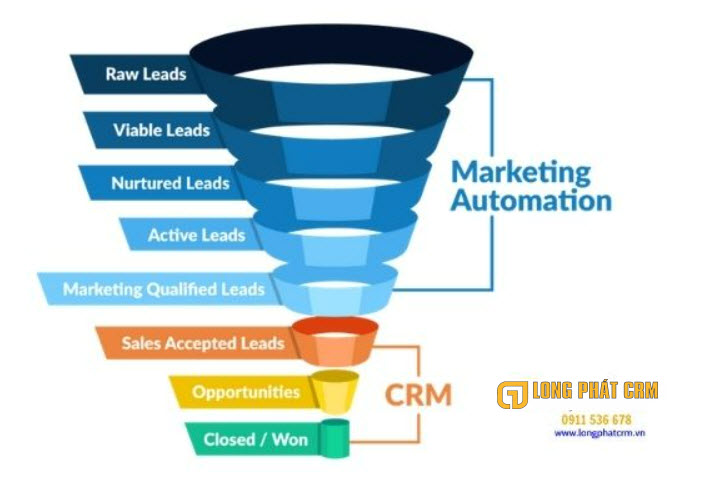
1. Transforming Potential Customers into Loyal Customers
For a potential customer to become a loyal customer or partner of the business, the relationship-building process goes through seven stages:
- Attraction, establishment, and creation
- Development, maintenance, and reinforcement of loyalty
Relationships are established based on several key factors: trust, satisfaction, value delivery, communication, and social bonding.
Trust is considered the most crucial factor in relationships. The trust that customers place in the product’s ability to meet their needs and in the provision of good, professional service is paramount. Customers are often susceptible to fluctuations and risks. Therefore, trust is the factor that helps customers remain loyal to the business.
2. Customer Satisfaction
Many customers are not satisfied with the services and brands of businesses. This is a factor that is always of paramount concern throughout the operation of the business.
The value provided in the relationship is evaluated through the benefits customers receive and the costs they incur. Loyal customers expect discounted prices but still demand accompanying services: to be valued, to be cared for.
Effective communication involves sharing official information without barriers between customers and employees. Good communication includes conveying empathy, and understanding, quickly meeting customer needs, and understanding the product to maintain and nurture the relationship.
Social bonds depend on the level of intimacy between customers and the business. The exchange of information, and information connectivity between the business and customers. It creates a close bond between customers and the business. This will create a long-term commitment from customers
3. Methods of Relationship Marketing
There are 4 methods of implementation: direct mail, direct marketing, data-driven marketing, and customer relationship management.
Direct mail or telemarketing are highly effective marketing methods based on using available data. This method is often used as a short-term marketing tool.
Direct marketing evolves from the above method but focuses more on marketing and profit-generating activities. This method involves marketing communication strategies and offering products that customers have not purchased before.
4. CRM Customer Relationship Management
This is considered a personalized communication channel including face-to-face transactions, mailing, phone calls, and online Internet transactions. All the activities mentioned above are managed and automated by CRM in marketing processes. CRM is seen as a prioritized strategy for selecting and managing valuable relationships for businesses.
5. Building and Developing Core Services
This is the fundamental strategy in relationship marketing. It aims to establish customer relationships around accompanying services. Good services, and ideal services are those that can attract customers and meet their expectations. Linking the business with quality and sustainable accompanying services.
6. Personalizing Relationships for Each Customer
By understanding the specific characteristics, and preferences of each customer. Then, inputting all the information into the database and using it when needed. This helps the business tailor services accurately to each situation or specific case.
7. Creating Added Value for Services
Related to providing services to differentiate from competitors. This makes customers satisfied and feel more attached to the business.
8. Internal Marketing
This is how to build trust from employees of the business. Because the quality of service depends greatly on their expertise, skills, and attitudes towards customers. Direct meetings and phone calls help the management understand the needs and expectations of employees. From there, policies are put in place to care for and motivate employees to be satisfied with their work. Only then will employees serve customers with the best attitude and highest quality.
To automate the entire marketing process, including all the steps above, businesses should explore how to effectively apply CRM in marketing.
